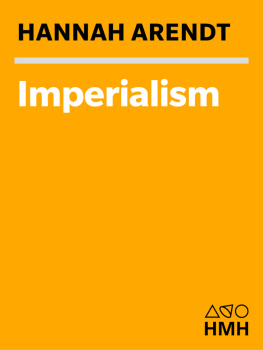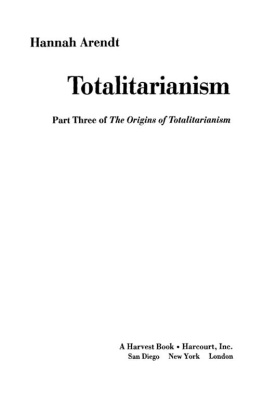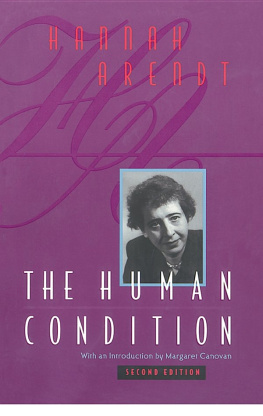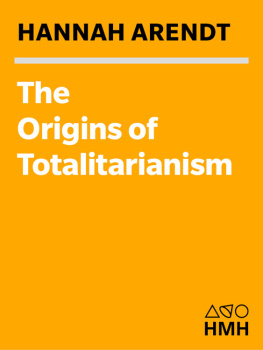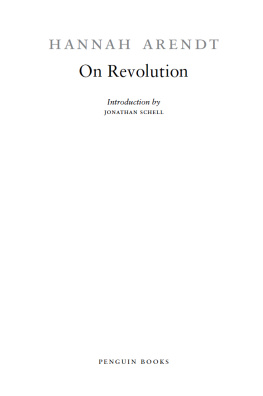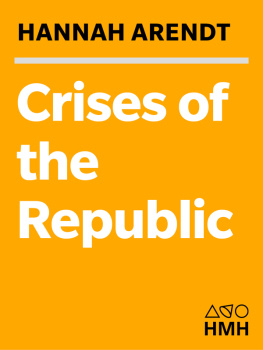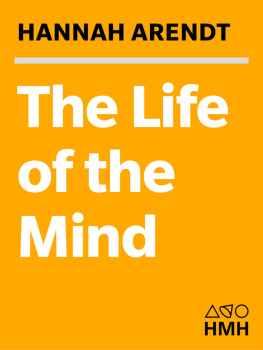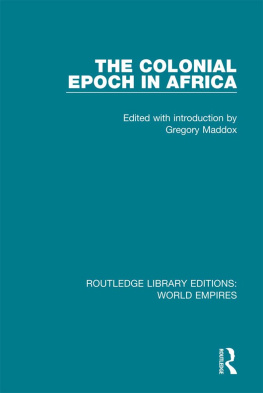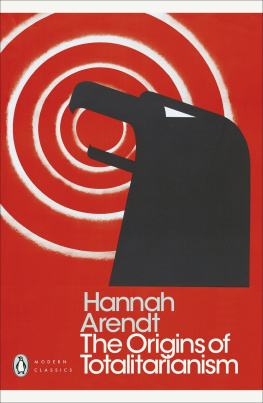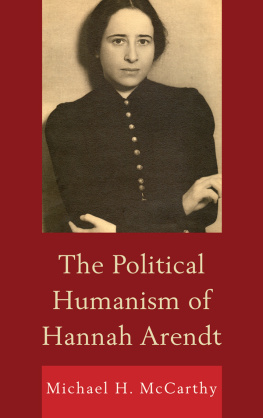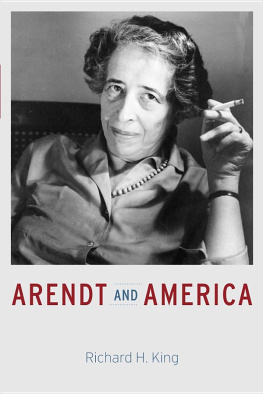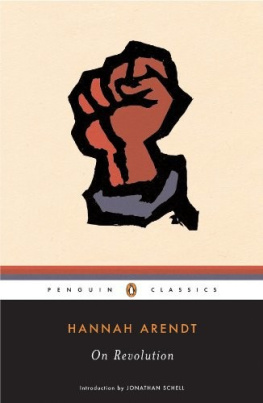Hannah Arendt - Imperialism: Part Two Of The Origins Of Totalitarianism
Here you can read online Hannah Arendt - Imperialism: Part Two Of The Origins Of Totalitarianism full text of the book (entire story) in english for free. Download pdf and epub, get meaning, cover and reviews about this ebook. year: 1968, publisher: Mariner Books, genre: Politics. Description of the work, (preface) as well as reviews are available. Best literature library LitArk.com created for fans of good reading and offers a wide selection of genres:
Romance novel
Science fiction
Adventure
Detective
Science
History
Home and family
Prose
Art
Politics
Computer
Non-fiction
Religion
Business
Children
Humor
Choose a favorite category and find really read worthwhile books. Enjoy immersion in the world of imagination, feel the emotions of the characters or learn something new for yourself, make an fascinating discovery.
- Book:Imperialism: Part Two Of The Origins Of Totalitarianism
- Author:
- Publisher:Mariner Books
- Genre:
- Year:1968
- Rating:5 / 5
- Favourites:Add to favourites
- Your mark:
- 100
- 1
- 2
- 3
- 4
- 5
Imperialism: Part Two Of The Origins Of Totalitarianism: summary, description and annotation
We offer to read an annotation, description, summary or preface (depends on what the author of the book "Imperialism: Part Two Of The Origins Of Totalitarianism" wrote himself). If you haven't found the necessary information about the book — write in the comments, we will try to find it.
Imperialism: Part Two Of The Origins Of Totalitarianism — read online for free the complete book (whole text) full work
Below is the text of the book, divided by pages. System saving the place of the last page read, allows you to conveniently read the book "Imperialism: Part Two Of The Origins Of Totalitarianism" online for free, without having to search again every time where you left off. Put a bookmark, and you can go to the page where you finished reading at any time.
Font size:
Interval:
Bookmark:
Copyright 1968, 1966, 1958 by Hannah Arendt
Copyright 1951, 1948 by Hannah Arendt
Copyright renewed 1994 by Lotte Kohler
Copyright renewed 1979 by Mary McCarthy West
Copyright renewed 1976 by Hannah Arendt
All rights reserved. No part of this publication may be reproduced or transmitted in any form or by any means, electronic or mechanical, including photocopy, recording, or any information storage and retrieval system, without permission in writing from the publisher.
For information about permission to reproduce selections from this book, write to Permissions, Houghton Mifflin Harcourt Publishing Company, 215 Park Avenue South, New York, New York 10003.
www.hmhbooks.com
The Library of Congress has cataloged the print edition as follows:
Arendt, Hannah.
The origins of totalitarianism.
A Harvest book.
Includes bibliographies and indexes.
Contents: pt. 1 Antisemitismpt 2. Imperialism
pt 3. Totalitarianism.
1. Totalitarianism. 2. Imperialism. 3. Antisemitism.
I. Title.
JC481.A62 1985 321.9 84-22579
ISBN 0-15-607810-4 (pbk.: v. 1)
ISBN 0-15-644200-0 (pbk.: v. 2)
eISBN 978-0-547-70520-0
v2.0513
R ARELY could the beginnings of a historical period be dated with such precision and seldom were the chances for contemporary observers to witness its definite end so good as in the case of the imperialist era. For imperialism, which grew out of colonialism and was caused by the incongruity of the nation-state system with the economic and industrial developments in the last third of the nineteenth century, started its politics of expansion for expansions sake no sooner than around 1884, and this new version of power politics was as different from national conquests in border-wars as it was from true empire-building Roman style. Its end seemed unavoidable after the liquidation of His Majestys Empire, over which Churchill had refused to preside, had become an accomplished fact with the declaration of Indian independence. That the British liquidated their colonial rule voluntarily is still one of the most momentous events of twentieth-century history, and after this had happened no European nation could hold on to its overseas possessions. The only exception is Portugal, and her strange ability to continue a fight that all other European colonial powers had to give up may be due to her national backwardness even more than to Salazars dictatorship; for it was not mere weakness or the exhaustion due to two murderous wars in one generation but also the moral scruples and political apprehensions of the fully developed nation states that advised against extreme measures, the introduction of administrative massacres (A. Carthill) that might well have broken the nonviolent rebellion in India, and against a continuation of the government of subject races (Lord Cromer) because of the much-feared boomerang effect upon the mother countries. When finally France, thanks to the then still intact authority of De Gaulle, dared to give up Algeria, which she had always considered as much a part of France as the dpartement de la Seine, a point of no return seemed to have been reached.
Whatever the merits of this hope might have been if the hot war against Nazi Germany had not been followed by the cold war between Soviet Russia and the United States, in retrospect one is tempted to look upon the last two decades as the time-span during which the two most powerful countries of the earth jockeyed for position in a competitive struggle for predominance in more or less the same regions in which European nations had ruled before. In the same vein one is tempted to look upon the new uneasy dtente between Russia and America as the result of the emergence of a third potential world power, China, rather than as the healthy and natural consequence of Russias detotalitarization after Stalins death. And if further developments should validate such tentative interpretations, it would mean in historical terms that we are back, on an enormously enlarged scale, where we started from, that is, in the imperialist era and on the collision course that led to World War I.
It has often been said that the British acquired their empire in a fit of absent-mindedness, as consequence of automatic trends, yielding to what seemed possible and what was tempting, rather than as a result of deliberate policy. If this is true, then the road to hell may just as well be paved with no intentions as with the proverbial good ones. And the objective facts that invite a return to imperialist policies are indeed so strong today that one is inclined to believe at least in the half-truth of the statement, the hollow assurances of good intentions on both sidesAmerican commitments to the nonviable status quo of corruption and incompetence on one side, Russian pseudo-revolutionary talk about wars of national liberation on the othernotwithstanding. The processes of nation-building in backward areas where lack of all prerequisites for national independence is in exact proportion to a rampant, sterile chauvinism have resulted in enormous power vacuums, for which the competition between the superpowers is all the fiercer, as with the development of nuclear weapons a direct confrontation of their means of violence as a last resort to solve all conflicts seems to be definitely ruled out. Not only does every conflict between the small, undeveloped countries in these vast areas, be it a civil war in Vietnam or a national conflict in the Middle East, immediately attract the potential or actual intervention of the superpowers, but their very conflicts, or at least the timing of their outbreaks, are suspect of having been manipulated or directly caused by interests and maneuvers that have nothing whatsoever to do with the conflicts and interests at stake in the region itself. Nothing was so characteristic of power politics in the imperialist era than this shift from localized, limited and therefore predictable goals of national interest to the limitless pursuit of power after power that could roam and lay waste the whole globe with no certain nationally and territorially prescribed purpose and hence with no predictable direction. This backsliding has become apparent also on the ideological level, for the famous domino-theory, according to which American foreign policy feels committed to wage war in one country for the sake of the integrity of others that are not even its neighbors, is clearly but a new version of the old Great Game whose rules permitted and even dictated the consideration of whole nations as stepping-stones, or as pawns, in todays terminology, for the riches and the rule over a third country, which in turn became a mere stepping-stone in the unending process of power expansion and accumulation. It was this chain reaction, inherent in imperialist power politics and best represented on the human level by the figure of the secret agent, of which Kipling said (in Kim), When every one is dead the Great Game is finished. Not before; and the only reason his prophecy did not come true was the constitutional restraint of the nation-state, while today our only hope that it will not come true in the future is based on the constitutional restraints of the American republic plus the technological restraints of the nuclear age.
but foreign aid, even if given for purely humanitarian reasons, is political by nature precisely because it is not motivated by the search for profit. Billions of dollars have been spent in political and economic wastelands where corruption and incompetence have caused them to disappear before anything productive could be started, and this money is no longer the superfluous capital that could not be invested productively and profitably in the home country but the weird outgrowth of sheer abundance that the rich countries, the haves as against the have-nots, can afford to lose. In other words, the profit motive, whose importance for imperialist policies was frequently overrated even in the past, has now completely disappeared; only very rich and very powerful countries can afford to take the huge losses involved in imperialism.
Next pageFont size:
Interval:
Bookmark:
Similar books «Imperialism: Part Two Of The Origins Of Totalitarianism»
Look at similar books to Imperialism: Part Two Of The Origins Of Totalitarianism. We have selected literature similar in name and meaning in the hope of providing readers with more options to find new, interesting, not yet read works.
Discussion, reviews of the book Imperialism: Part Two Of The Origins Of Totalitarianism and just readers' own opinions. Leave your comments, write what you think about the work, its meaning or the main characters. Specify what exactly you liked and what you didn't like, and why you think so.

